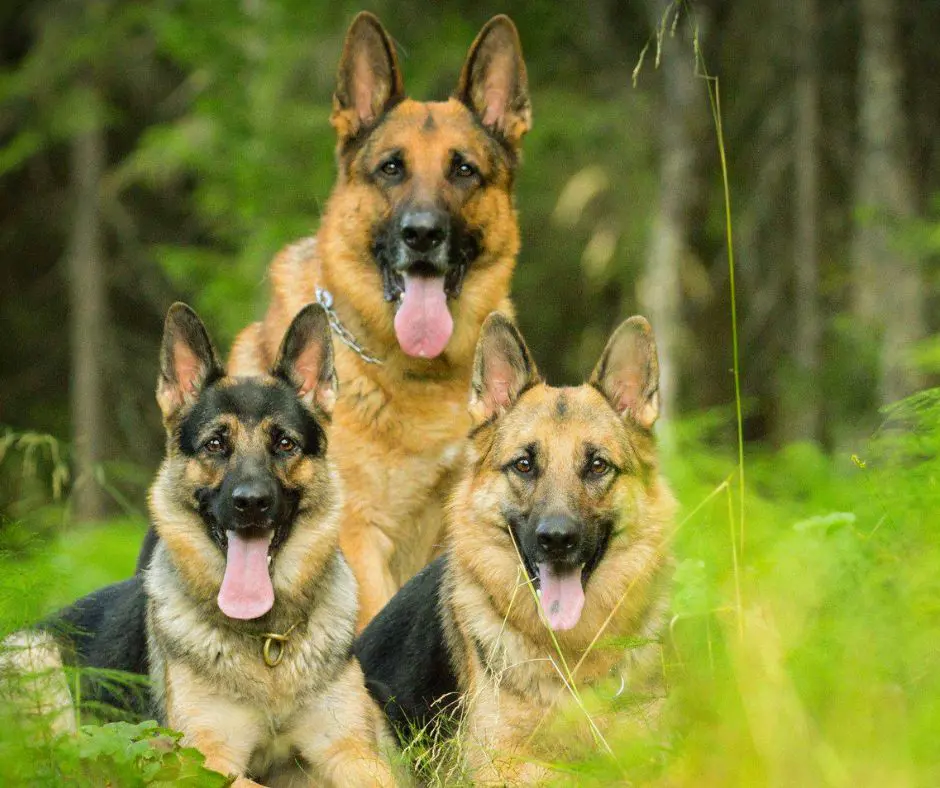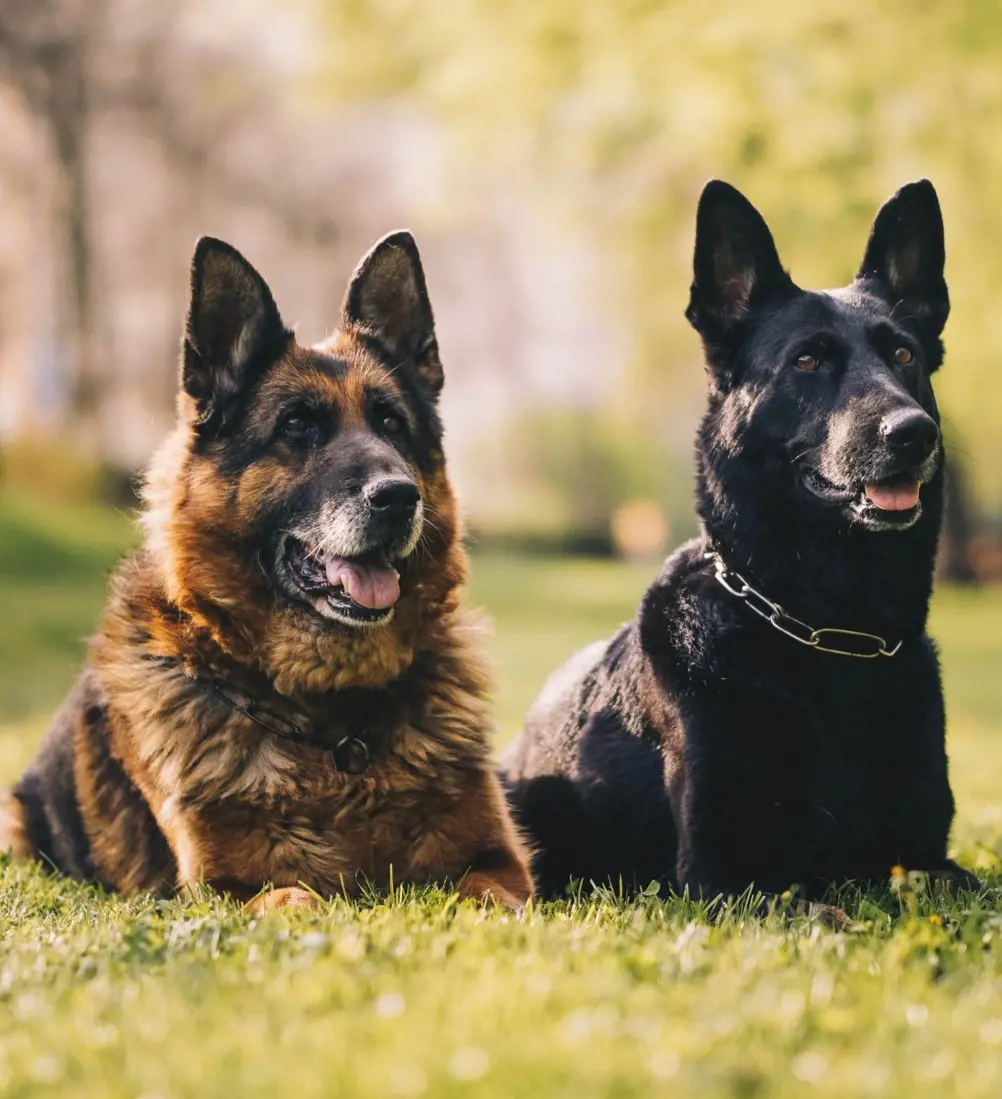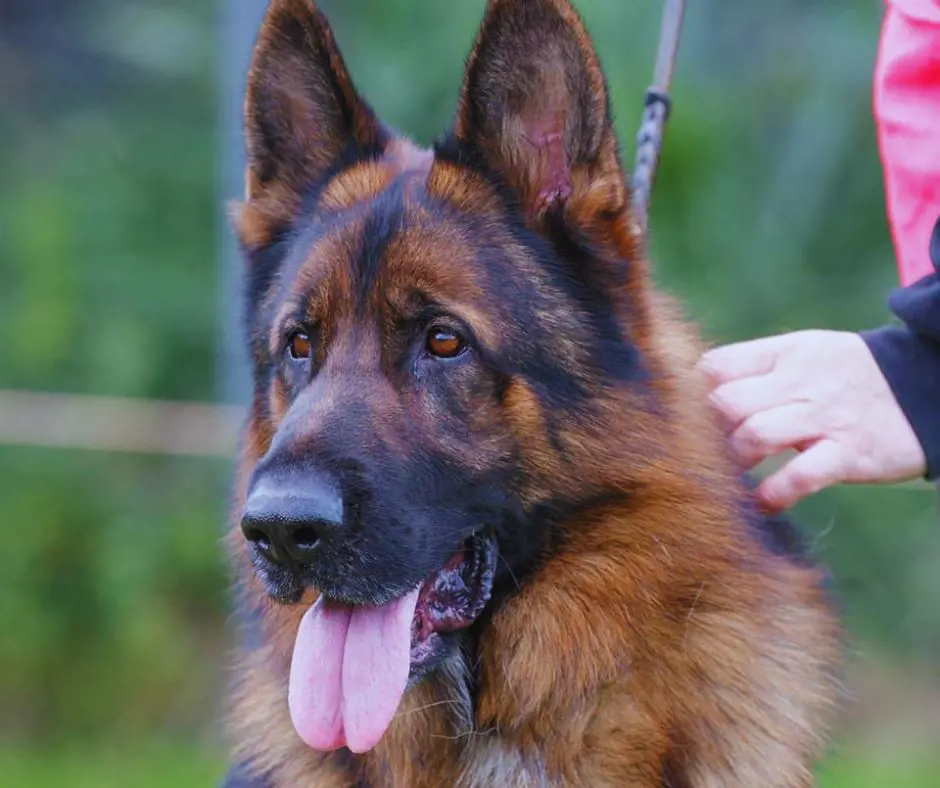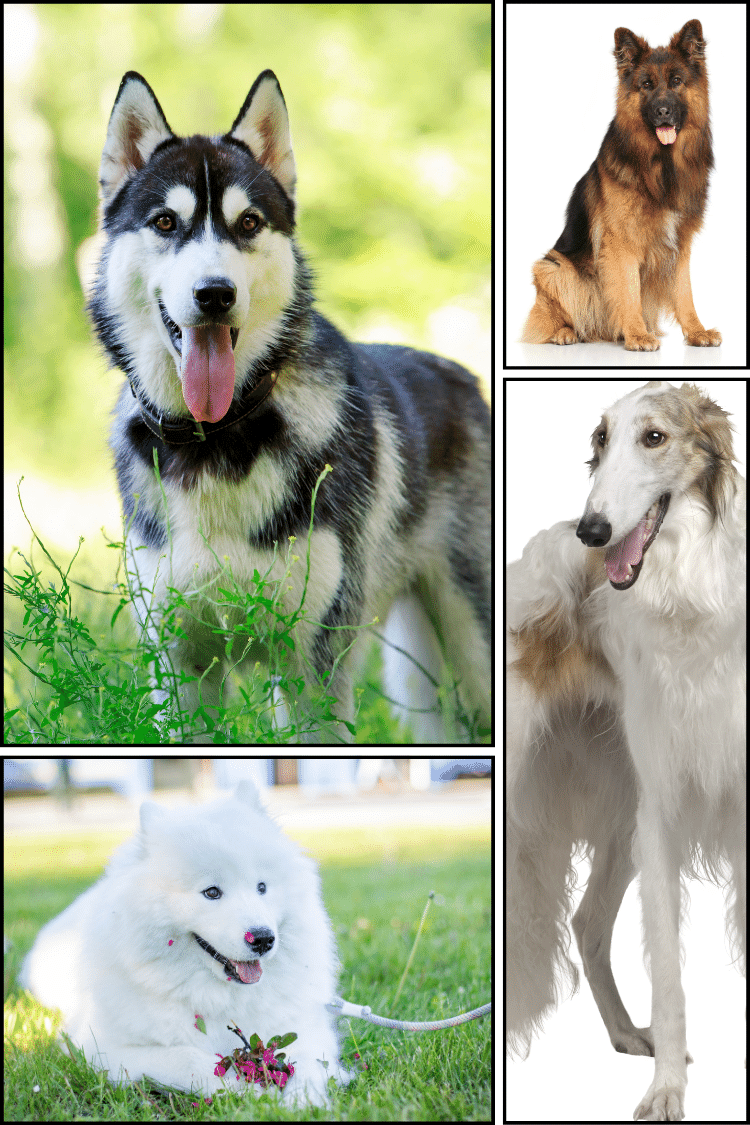German Shepherd Dog Breed Profile, Characteristics And Care

The German Shepherd Dog, also known as the Alsatian, is a breed of working dog of medium to large size. They are known for their intelligence, loyalty, and versatility.
These breeds are originally from Germany and were bred as herding dogs, but they are now used in many other roles, including police work, search and rescue, service dogs, and companion dogs.
They are medium to large-sized dogs with a strong and muscular build. They typically have a double coat consisting of a dense, straight outer coat and a softer undercoat. Common color variations include black and tan, sable, black, and solid white.
German Shepherd Overview

The German Shepherd, also known as the Alsatian, is a renowned dog breed admired for its intelligence, loyalty, and versatility.
Origins and Purpose
Bred in Germany as a herding dogs, now excelling in diverse roles like police work, search and rescue, service dogs, and family companions.
Height: 22 to 26 inches
Weight: 60 to 100 pounds
Appearance
- Large and muscular build with a double coat. Common colors include black and tan, black and silver, red and black, and solid black, or white.
- Erect ears, pointed muzzle, and a bushy tail.
Temperament
- Highly intelligent: Eager to please and learn, trainable for various tasks.
- Loyal and protective: Devoted to their families and property, naturally alert and watchful.
- Confident and courageous: Possess bravery and determination.
- Independent and stubborn: Require early training and proper socialization to prevent unwanted behaviors.
History Of The German Shepherd

The history of the puppy German Shepherd dog traces back to the late 19th century in Germany when Captain Max von Stephanitz sought to create a versatile herding and working dog.
During World War I, their exceptional abilities were recognized, leading to their widespread use as military dogs.
Post-war, their popularity soared globally, cementing their status as one of the most admired and sought-after breeds. Throughout the 20th century, German Shepherds continued to thrive in roles ranging from police and military work to service dogs and beloved family companions.
German Shepherds Characteristics

- Intelligence: Renowned for their sharp minds, puppies of German Shepherds are quick learners and excel in obedience training and complex tasks.
- Loyalty: They form strong bonds with their owners and families, demonstrating unwavering loyalty and devotion.
- Courage: Fearless and confident, German Shepherds possess a strong sense of bravery, making them reliable protectors.
- Work Ethic: With a strong desire to work and serve, they have a diligent work ethic, excelling in various roles and tasks.
- Versatility: Adaptability is a hallmark of German Shepherds, allowing them to thrive in diverse environments and perform various duties.
- Temperament: Typically stable and composed, they have a balanced temperament, displaying confidence and alertness.
- Energy Level: Breeds of German Shepherd dogs are high-energy dogs, requiring regular exercise and mental stimulation to stay healthy and content.
Lifespan Of German Shepherd

The lifespan of the breed of German Shepherd dog typically ranges from 9 to 13 years, although individual dogs may vary. Proper care, nutrition, and regular veterinary check-ups can influence their longevity. While they are generally healthy dogs, German Shepherds may be prone to certain health issues.
Responsible breeding practices, maintaining a healthy weight, and providing adequate exercise are crucial factors in promoting their overall health and extending their lifespan.
Providing a loving and supportive environment can also contribute to ensuring they live a fulfilling and happy life for as long as possible.
German Shepherd Care

German Shepherd care involves providing proper nutrition, regular exercise, and routine veterinary check-ups to ensure their health and well-being. Mental stimulation through training and interactive play is essential to prevent boredom and behavioral issues.
Grooming, including brushing their double coat, regular bathing, nail trimming, and dental care, helps maintain their hygiene and overall health. Socialization from a young age fosters good behavior and positive interactions with other animals and people.
Finally, offering love, attention, and a safe environment creates a strong bond between the owner and the dog breeds German Shepherd, ensuring a happy and fulfilling life together.
Grooming Guide For German Shepherd

While they may have a thick double coat, grooming doesn't have to be daunting. With the right tools and techniques, you'll keep your furry friend looking and feeling their best in no time.
- Brushing Basics: Start with a quality slicker brush and stainless steel comb. Brush your canine German Shepherd coat at least once a week to remove loose hair and prevent mats.
- Bathing Tips: Bathe your German Shepherd as needed, typically every 6-8 weeks, or when they start to smell or get dirty. Use a gentle dog shampoo and lukewarm water. Thoroughly rinse to remove all soap residue, as leftover soap can irritate their skin.
- Coat Care: German Shepherds shed year-round, with heavier shedding occurring during seasonal changes. Regular grooming helps manage shedding and keeps their coat healthy.
- Ear and Eye Care: Check your Shepherd German dog's ears regularly for signs of redness, irritation, or wax buildup. Clean their ears with a veterinarian-approved ear cleaner as needed.
Understanding German Shepherd Health Issues

Embarking on the journey of dogs German Shepherds care involves understanding their unique health concerns. From hip dysplasia to degenerative myelopathy, these noble companions may face various challenges.
Some common health issues of German Shepherds are:
- Hip Dysplasia
- Elbow Dysplasia
- Degenerative Myelopathy
- Bloat (Gastric Dilatation-Volvulus)
- Pancreatitis
- Hemophilia
- Epilepsy
- Osteoarthritis
Feeding Guidelines For German Shepherd

Adult dog breed German Shepherd will require two meals each day, each containing up to 2 cups of dry dog food, depending on the dog's size, activity level, age, and health.
You might also mix canned dog food into the kibble to add flavor and interest. They are prone to bloating and stomach torsion, so avoid giving your dog one huge meal each day and having him gulp it down. Make sure your dog has consistent access to clean, fresh water.
Obesity shortens your dog's life, so keep an eye on their weight and address any overweight issues as soon as possible. You can also talk to your veterinarian about your dog's nutritional needs and acquire advice for feeding regimens and dog food varieties that will last throughout his or her life.
Pros And Cons Of Having German Shepherd

Majestic dogs German Shepherd dogs, renowned for its intelligence, loyalty, and versatility, tempt many with the dream of an ideal canine companion. Before welcoming this regal breed into your life, it's crucial to weigh the undeniable pros against potential challenges.
From their boundless energy and training requirements to potential shedding and health concerns, a well-informed decision ensures not only your happiness but also the well-being of your future furry friend.
Pros:
- Loyalty and Protection
- Intelligence and Trainability
- Versatility and Adaptability
- Long Lifespan
- Active Lifestyle
Cons:
- Moderate to Heavy Shedding
- High Energy Needs
- Potential for Separation Anxiety
- Training and Socialization Commitment
- Potential Health Concerns
While their protective instincts can be beneficial, they may exhibit territorial behavior and require proper socialization to prevent aggression toward strangers or other animals.
Where To Adopt Or Buy A German Shepherd?

There are several options for adopting or buying a German Shepherd breed dog:
- Animal Shelters and Rescues: Many animal shelters and rescue organizations across the country have German Shepherds available for adoption. Websites like Petfinder.com and Adoptapet.com allow you to search for adoptable German Shepherds in your area.
- German Shepherd Breeders: It's essential to do thorough research to find a reputable breeder who prioritizes the health and well-being of their dogs. The American Kennel Club (AKC) website provides a list of registered German Shepherd breeders in the USA.
- Online Platforms: Websites like PuppyFind.com and NextDayPets.com list German Shepherd puppies for sale by breeders across the country.
- Local Classifieds and Community Boards: Occasionally, you may find German Shepherd puppies or dogs being offered for adoption through local classified ads, social media groups, or community bulletin boards.
A German Shepherd puppy can cost anywhere from $2,000 to $4,000, depending on factors like sex, beauty, demand, and background.
The German Shepherd's health, temperament, and welfare should always come first, no matter where you decide to adopt or buy one. Before adopting a German Shepherd into your house, make sure you're ready for the commitment and responsibility that come with dog ownership.
Top Lists





